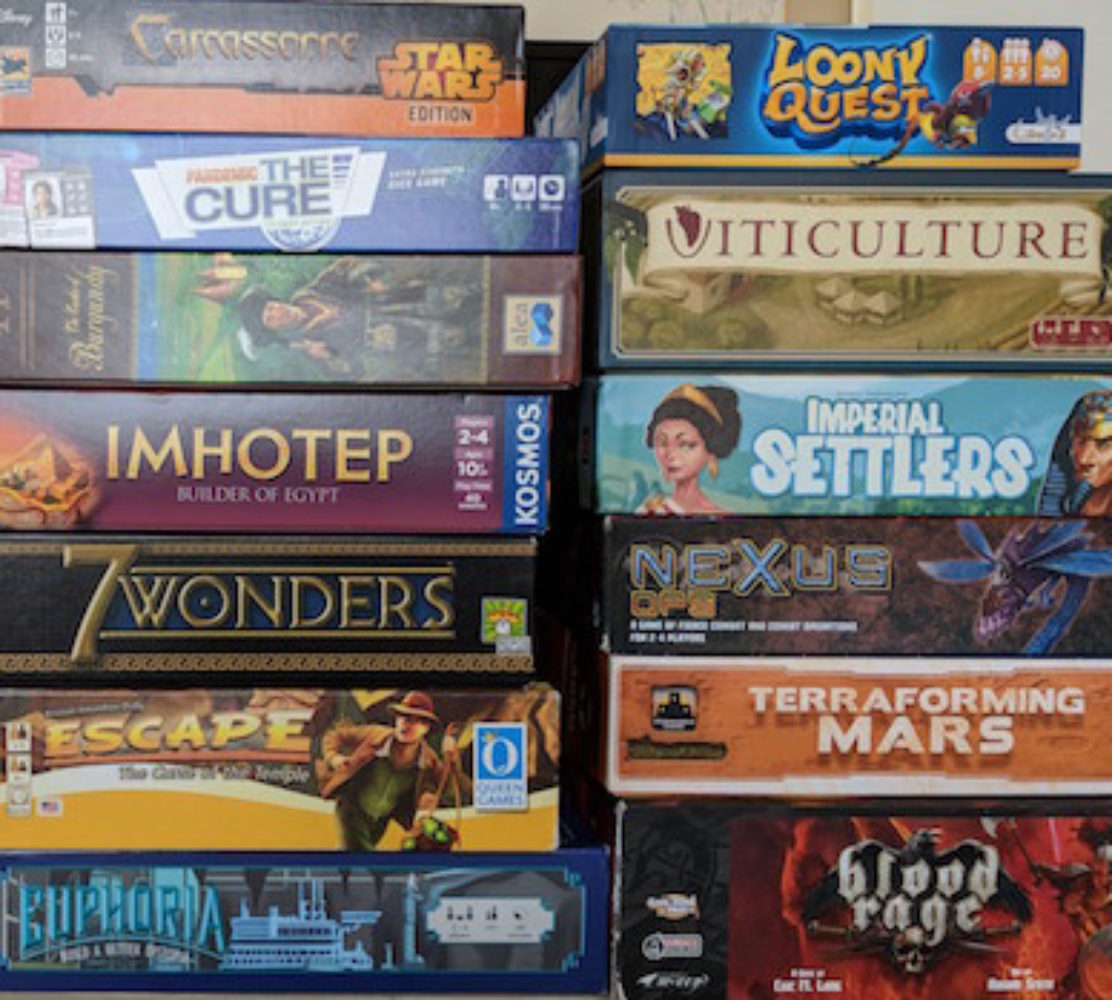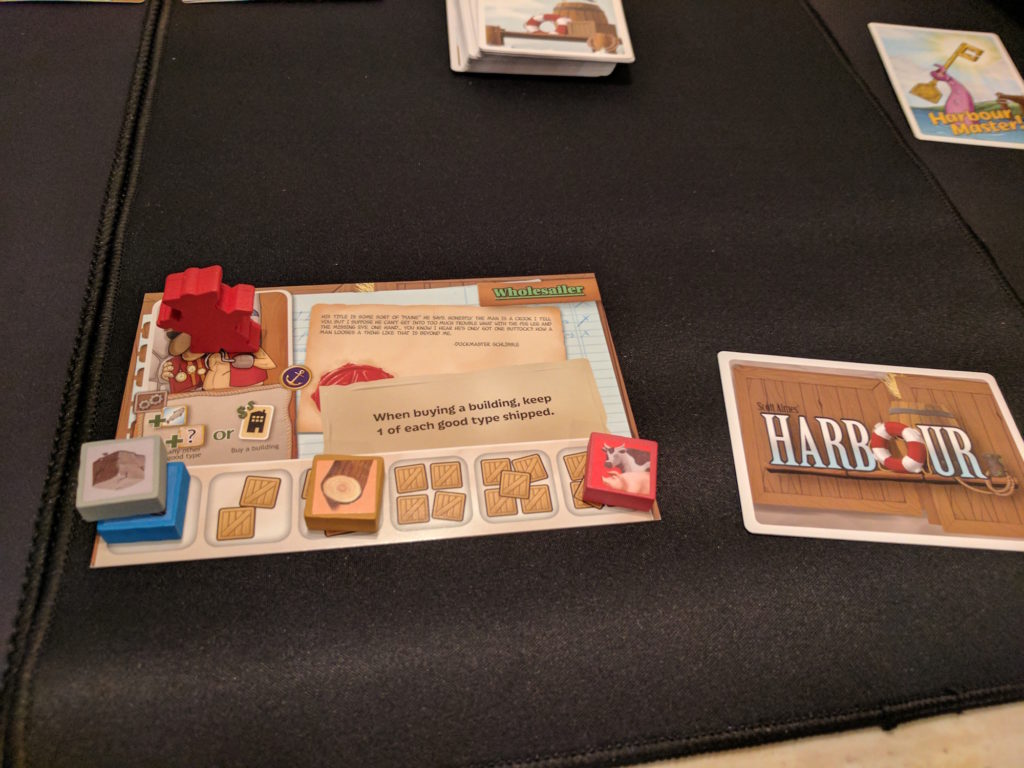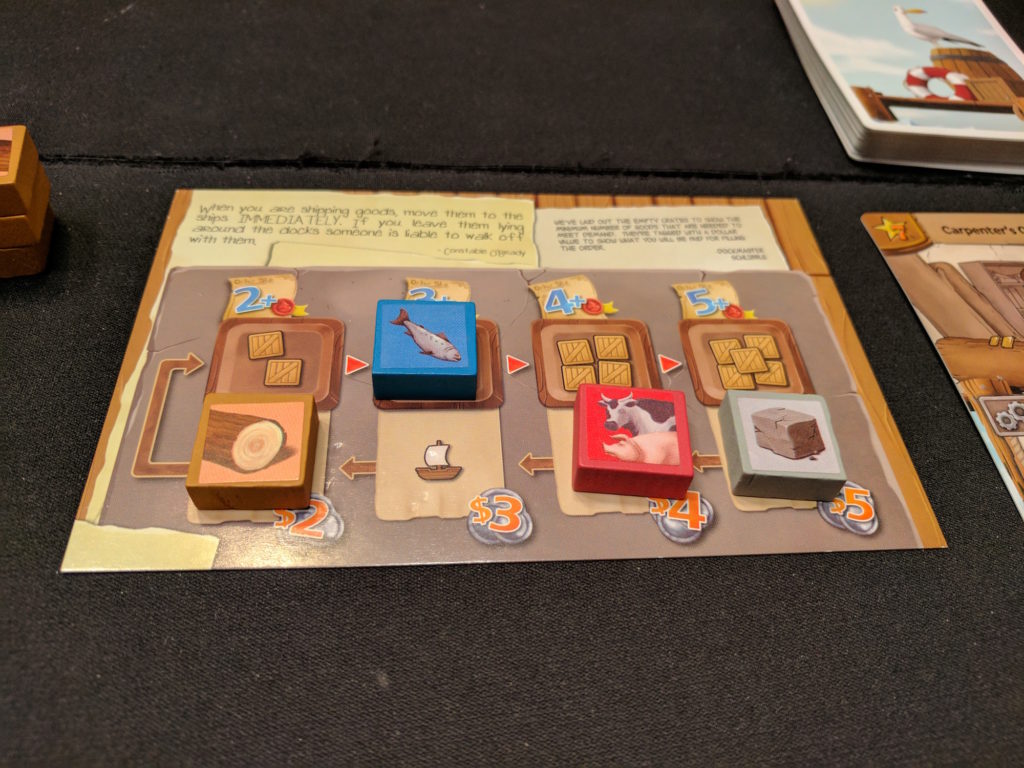I’m an unabashed fan of Scott Almes’ games, especially his Tiny Epic Series (I own and enjoy Kingdoms, Galaxies, and Western; I Kickstarted the Galaxies expansion and Tiny Epic Quest). I appreciate how he uses some of my favorite game mechanisms in games that play in less than an hour, like worker placement in Western, dice allocation in Galaxies, or 4X in Kingdoms. It’s also cool how he includes solo rules for most of his games.
I bought Harbour from my buddy Oscar last year and it sat on my Shelf of Shame until recently, when I solo-ed it using the 20-move solo variant rules on BGG. It was an easy way to learn and play the game.
A few of the reviews of Harbour have called it Le Havre Lite or Tiny Epic Le Havre since it has similar worker placement and resource management mechanisms, but in a smaller package. Players race to buy four buildings from a common pool first. Each building has a cost payable by one or more goods from the current player. On their turn, a player will send their worker meeple to a building and perform the action(s) listed on it; often, it’s to trade for more goods, which can then be used to buy a building. Players have a home base that they can return to for more actions, as well as travel to an opponent’s buildings to perform their actions (although this costs one good).
What makes Harbour so much fun is the economic mechanism in the game. Whenever a player buys a building, they must “ship” enough goods to pay for it. So, if the player has 5 fish and 3 lumber and the current market has fish at $5 and lumber at $3, then the player can ship those goods for $8 and buy any building up to $8. Then, after the purchase has been completed, the market shifts, with the fish and lumber being worth less, while livestock and stone go up in value.
It’s a neat part of the game, trying to time your purchase just right so that you get the most money for your goods. More often than not, an opponent will buy something and change the value of your goods. Thankfully, there are buildings with powers that allow you to adjust the market to something more to your liking.
I enjoy Harbour, even if it usually ends more quickly than I prefer. It’s a great warm-up game, a filler with a bit more meat on the bones.
I’ve now played 8 of the 49 games on my Shelf of Shame!
Shelf of Shame 2017
- Agricola
- Amerigo
- Cheaty Mages!
- Chrononauts
- Cypher
- Dice City: By Royal Decree
- Dice City: Crossroads
- Doomtown: Reloaded
- Dungeon Fighter
- Eminent Domain: Microcosm
- Epic Card Game
Formula D- Get Bit! Sharkspansion
- Guildhall
- Guildhall: Job Faire
- Hanafuda
HarbourImperial Settlers- Lost Legacy: Flying Garden
- Machi Koro: Harbor
- Marvel Dice Masters: Age of Ultron
- Mottainai
- Munchkin Legends: Guest Artist Edition
- Munchkin Zombies Deluxe
- NBA Interactive Card Game
- Ophidian 2350
- Pack of Heroes
- Pandemic: On The Brink
- Pathfinder Adventure Card Game: Rise of the Runelords Base Set + Expansions
- Pingo Pingo
- Portobello Market
- Quiddler Mini Round
- Rampage
- Sail to India
- Sans Allies
- Santorini: Golden Fleece
- Seventh Hero (Doomtown edition)
- Space Base Mutiny
- Steam Torpedo: First Contact
- Suburbia
Sun TzuTiny Epic KingdomsTravel BlogValley of the Kings: Last Rites- Viceroy
- Vikings on Board
Viticulture Essential Edition- Wok Star
- Yahtzee: The Walking Dead Collector’s Edition


